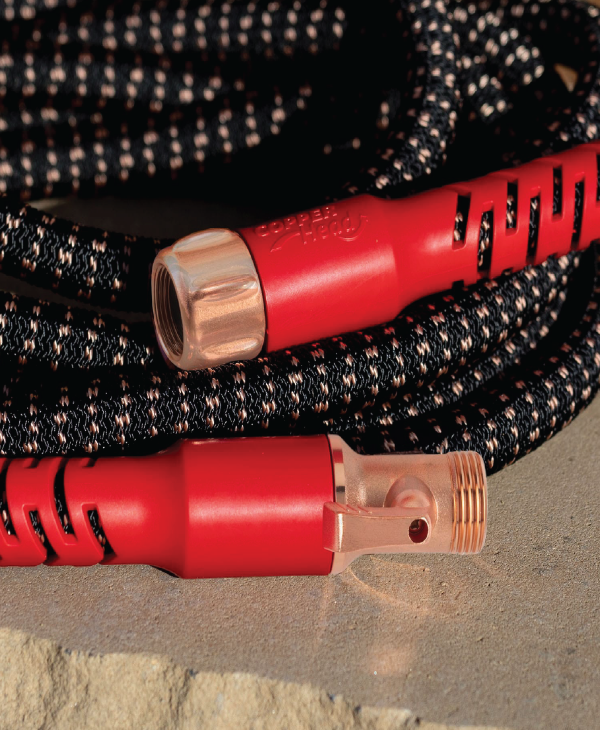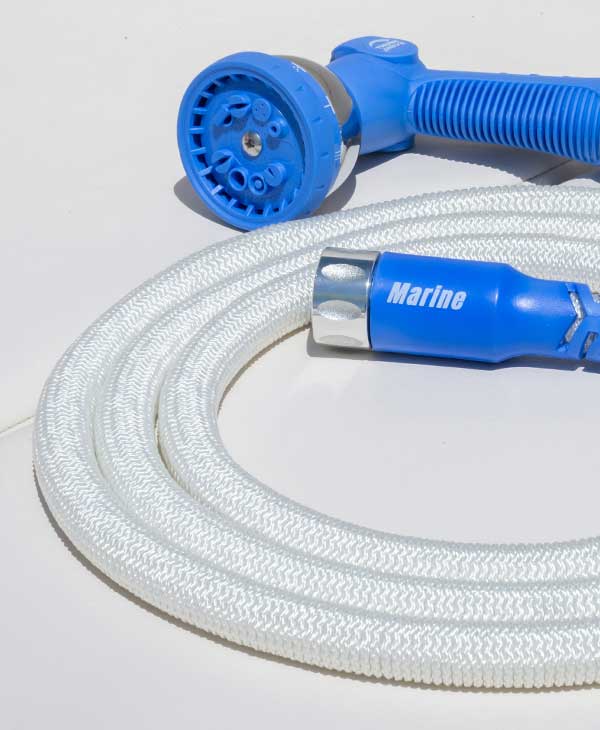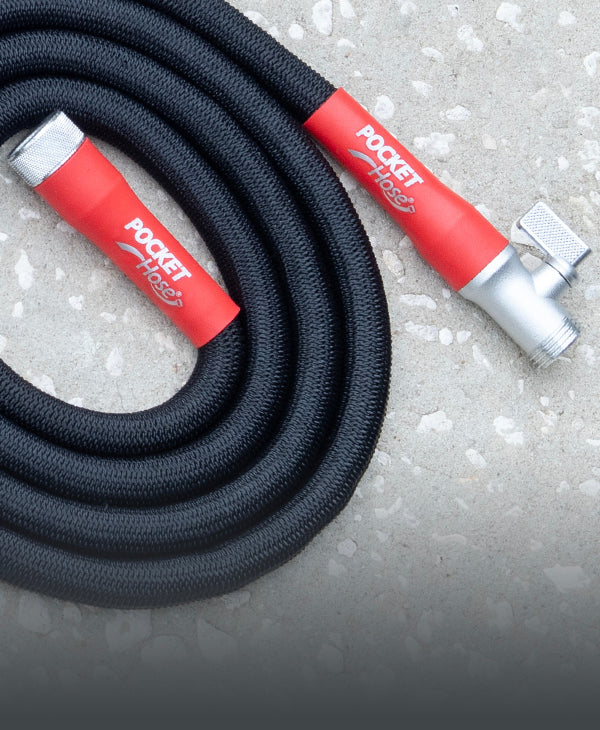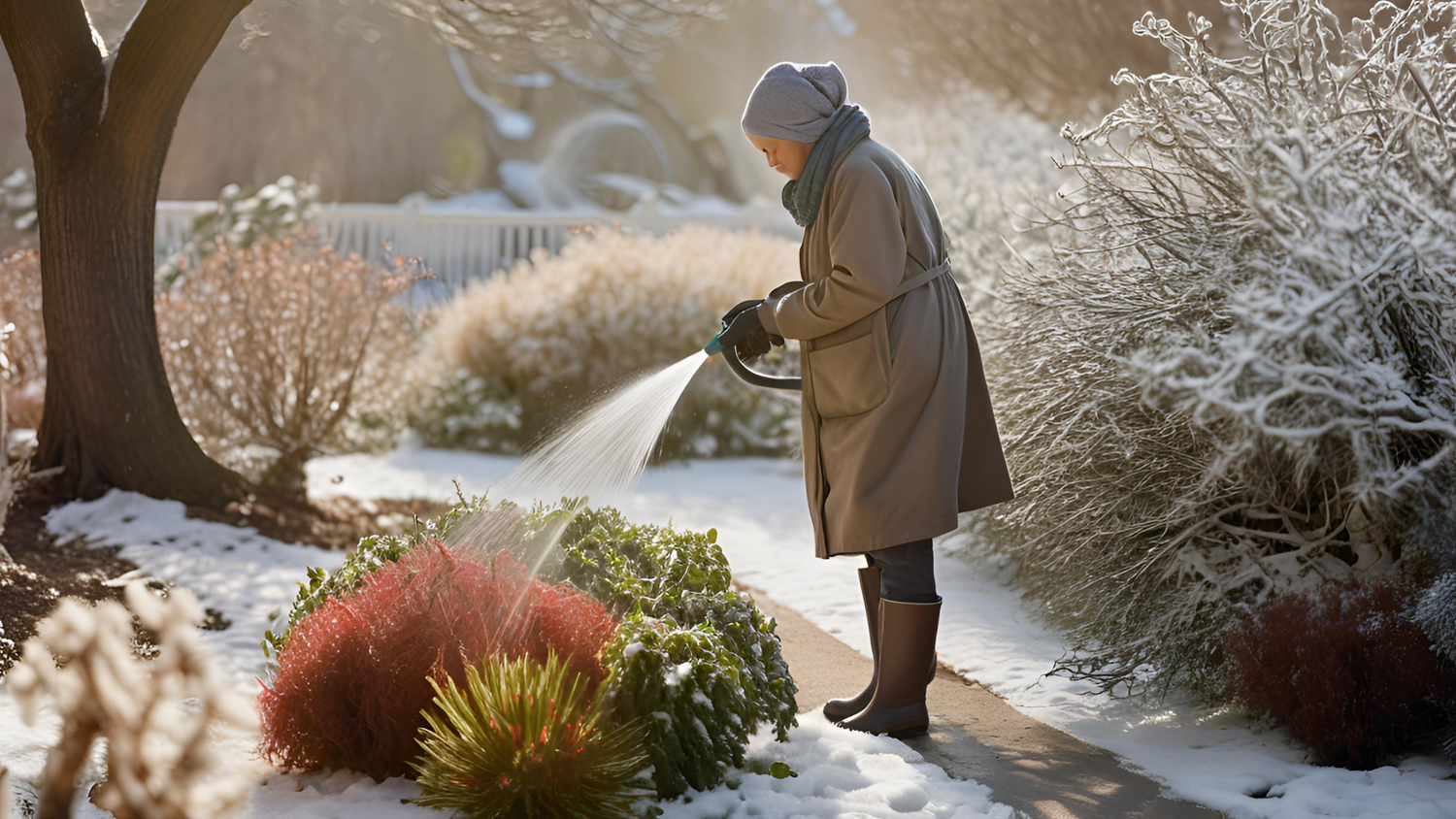Gardening is a famous spring and summer pastime and a year-round commitment. As winter approaches, gardeners often think about protecting their plants from the cold, but there's another crucial factor that requires attention – watering. Watering in winter plays a pivotal role in preparing your garden for the colder months and ensuring a lush, vibrant garden come spring. This comprehensive guide explores why winter watering is essential, how to do it properly, and its benefits to your garden's overall health and preparedness for the winter months.
Understanding the Role of Watering in Winter
Watering plants in winter is counterintuitive, especially in regions where snowfall and rainfall are expected. However, those living in areas with mild winters or facing dry spells during colder months should pay close attention to their garden's hydration needs. Here's why:
1. Hydration for Plant Survival
During winter, the air is often drier, and the water in the soil can freeze, making it difficult for plants to absorb the moisture they need. While it's true that plants enter a dormant state and require less water, they still need a certain amount to maintain essential functions and survive the winter. Adequate watering in winter ensures that plants stay hydrated, prevents root desiccation, and avoids unnecessary stress that could lead to damage or death.
2. Preparing Soil for Spring
Water also prepares the soil for spring. When the ground isn't frozen, water penetrates the soil, helping to break down organic materials and enrich the soil with nutrients. This process is important for healthy soil structure and fosters an environment where plants can thrive once the growing season starts.
3. Guarding Against Winter Drought
Even during the winter, drought conditions can occur, and when they do, the effects can damage your garden. Regular watering helps to prevent the drying out of your soil, which can lead to a weakened root system and plant structure, making your garden less resilient to the harsh winter climate.
Tips for Watering Your Garden in Winter
Now that we've established the importance of watering your garden in winter, let's dive into some practical tips to ensure you're providing just the right amount of moisture:
Timing is Everything
The best time to water your garden in winter is on a warm day when temperatures are above freezing. Midday is usually ideal, as it gives enough time for the water to soak into the ground before potentially freezing at night. Be mindful of the weather forecast and avoid watering before a freeze; otherwise, the added water could turn into ice and harm plant roots.
Keep it Moderate
When watering in winter, you want to keep it moderate. Overwatering can lead to freezing and cause root rot or fungal diseases, as the lack of sunlight and cooler temperatures slow down the rate of evaporation. Check the soil before watering – if the top inch is dry, it's time to water.
Protect Your Plants
Mulch is your friend when retaining soil moisture and providing insulation from cold temperatures. After watering, apply a thick layer of organic mulch around the base of your plants. This acts as a buffer, keeps plant roots warm, and reduces water loss due to evaporation.

Use the Right Equipment
Investing in a good-quality hose that won't crack in the cold is wise. Additionally, consider using a watering can for smaller gardens to control the amount of water you give each plant. Soaker hoses or drip irrigation systems are terrific options for more extensive gardens as they deliver water directly to the base of the plant, reducing the chance of freezing on foliage.
Watch for Pests and Diseases
Pests and diseases can still be active in the winter, and overwatering can attract them. Keeping the watering balance right reduces the chance of these issues arising and helps ensure your plants are healthy and strong for winter.
How Often Should You Water?
The frequency of watering your garden in winter depends on various factors, including your specific climate, soil type, the types of plants you have, and whether you're experiencing unseasonably warm and dry conditions. As a rule of thumb, water once every two to three weeks during the winter if there has been no significant precipitation and temperatures have been above freezing.
Benefits of Proper Winter Watering
Implementing the correct watering practices in winter can have multiple benefits for your garden:
1. Healthier Plant Roots
Plants with adequate moisture have healthier and stronger roots. Water is a carrier for nutrients from the soil to the plant, which is still crucial in winter.
2. Resistance to Cold and Disease
Properly hydrated plants are better equipped to handle cold stress. They are more resilient and can resist diseases that often prey on weakened under-watered plants.
3. Better Spring Growth
Adequate winter watering sets the stage for vigorous spring growth. Plants will emerge from dormancy with a healthy foundation, translating into a garden full of vitality when warmer temperatures return.
4. Reduction of Soil Erosion
Keeping the soil moist helps to bind it together, reducing the potential for wind or water erosion that can strip away topsoil and damage the ground your plants rely on.
Final Thoughts on Watering Your Garden in Winter
Watering your garden in winter is a delicate balance. Too little water and your plants may suffer; too much, and you could cause more harm than good. The key is to monitor your garden regularly, understand your environment, and adjust your watering schedule accordingly. With these tips and considerations in mind, you’re now equipped to maintain a healthy garden that can withstand the winter and thrive in the spring.
While winter gardening requires extra attention to detail, your efforts to maintain proper watering practices during the colder months set the foundation for a robust and beautiful garden once the thaw comes around. Be mindful, be consistent, and enjoy nurturing your garden throughout the seasons.





Leave a comment
This site is protected by hCaptcha and the hCaptcha Privacy Policy and Terms of Service apply.